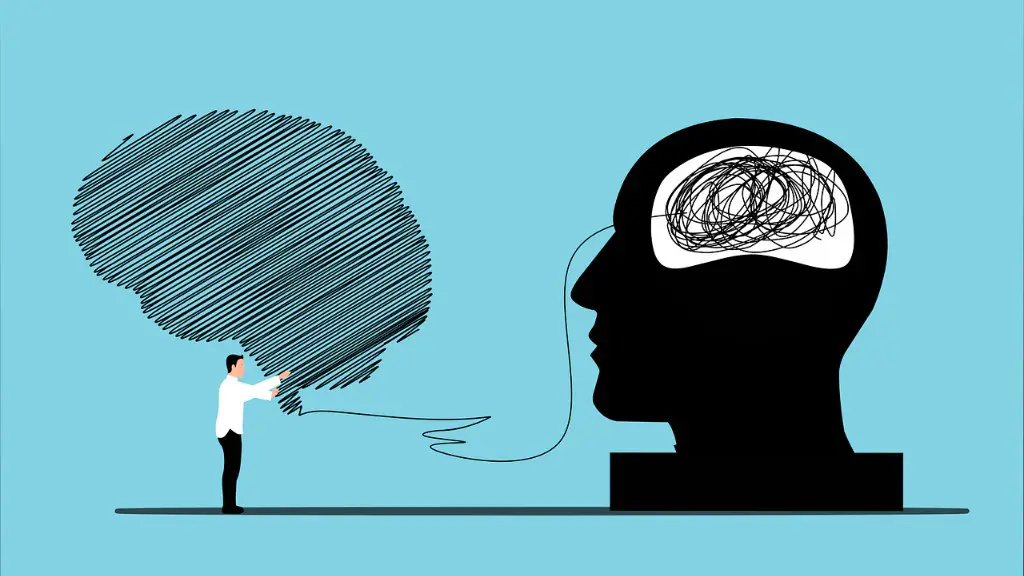It is well known that emotional stress can lead to a weakening of the immune system. What is not as well known is that emotional stress can also lead to high blood sugar. When the body is under stress, it releases a hormone called cortisol. Cortisol causes the body to release sugar into the blood stream for a burst of energy. The problem is that when the body is constantly under stress, as it is in today’s fast paced world, the sugar levels in the blood can become chronically high. This can lead to a host of problems including weight gain, diabetes, and heart disease. So if you are feeling stressed, it is important to find ways to relax and de-stress.
There is no one definitive answer to this question. Some experts believe that emotional stress can contribute to high blood sugar levels, while others believe that the link is not as clear. It is possible that emotional stress may lead to unhealthy coping mechanisms, such as overeating, which can in turn cause high blood sugar levels. However, more research is needed to determine the exact relationship between emotional stress and high blood sugar levels.
Can emotional stress raise blood sugar in non diabetics?
It’s important to be aware of how your emotions can affect your blood sugar levels. If you’re feeling anxious or stressed, your body will produce hormones that can raise your blood sugar levels, even if you haven’t eaten. So it’s important to take a moment to relax and de-stress whenever you can.
If you are suffering from diabetes, it is important to be aware of all the potential triggers for high blood sugar levels. Sunburn can be a surprising trigger for many people, as the pain from the burn can cause stress, which in turn can raise blood sugar levels. Other potential triggers include skipping meals, drinking alcohol, and being under stress. By being aware of all the potential triggers, you can help to keep your blood sugar levels under control.
Can stress raise your A1C
If you’re experiencing stress, it’s important to talk with your doctor about how it might be affecting your A1C level. Stress can trigger the release of hormones that can raise your blood sugar level, which can cause your A1C to increase. If you’re experiencing hormonal changes, your doctor may need to adjust your treatment plan.
It is important to remember that reducing carb intake is only one part of the solution to reducing insulin resistance. In many cases, people also need to focus on eating healthy fats and proteins to help reduce insulin resistance.
How long does stress affect blood sugar?
If you have low blood sugar, your body will release hormones to try to raise it. These hormones can last for 6-8 hours, which can make blood sugar difficult to control during that time.
A fasting blood sugar test is a test that is done to measure the amount of sugar in your blood after you have fasted for 8 hours. This test is used to diagnose diabetes. A normal fasting blood sugar level is less than 100 mg/dL. A level of 100 to 125 mg/dL is considered prediabetes. A level of 126 mg/dL or higher on two separate tests is considered diabetes.
How do you bring blood sugar down quickly?
There are a few things you can do to quickly lower your blood sugar levels if they become too high. One is to take fast-acting insulin, which will help to bring your levels down quickly. Exercise is another fast, effective way to lower your blood sugar. And in some cases, you may need to go to the hospital to get your levels under control.
The dawn phenomenon is a normal process that happens in the early morning hours. Hormones signal the liver to boost glucose production, which in turn triggers the release of insulin by the pancreas. This helps to keep blood glucose levels in check.
Can stress and anxiety cause diabetes
It is well known that people who are stressed tend to have higher levels of certain hormones that can affect how insulin works. What is less known, however, is that high stress levels can also lead to unhealthful lifestyle habits, which can, in turn, increase a person’s risk of developing diabetes. This is why it is so important to find ways to manage stress in your life, whether it be through exercise, relaxation techniques, or talking to a therapist. By keeping your stress levels under control, you can help to keep your diabetes risk under control as well.
If you have type 2 diabetes, you may be familiar with the A1C test, which is a measure of your average blood sugar levels over the past three months. Your A1C levels can fluctuate for a number of reasons, including vitamin deficiencies, supplements, stress, lack of sleep, and more. If you’re noticing some changes in your A1C levels, talk to your doctor to see if there may be an underlying cause.
What can falsely elevate A1C?
Several medications and substances have been reported to falsely elevate A1c levels. These include lead poisoning, chronic ingestion of alcohol, salicylates, and opioids. Ingestion of vitamin C may also increase A1c levels when measured by electrophoresis, but may decrease levels when measured by chromatography.
Multiple studies have shown that repeated awakenings during the night, insufficient sleep, excessive sleep, and irregular sleep all promote glucose intolerance. Furthermore, if a person has prediabetes or diabetes, poor sleep will worsen the condition.
What time of day is blood sugar highest
The dawn phenomenon is a condition in which blood sugar levels rise in the morning. This usually happens between 4 am and 8 am. The dawn phenomenon can lead to high levels of blood sugar, a condition called hyperglycemia. People with diabetes are susceptible to the dawn phenomenon.
Jau or barley water is rich in insoluble fiber, which makes it an ideal drink for diabetics. This water helps to stabilize blood sugar levels, and is packed with antioxidants that can help stave off many diseases. Be sure to drink unsweetened jau water for the best results.
How can I stabilize my blood sugar overnight?
A high-protein, low-fat snack before bed may help people with diabetes stabilize their blood sugar levels overnight.
Eating a high-protein, low-fat snack before bed may help people with diabetes to keep their blood sugar levels more stable overnight. Many people with diabetes experience fluctuations in their blood sugar levels during the night, which can lead to high blood sugar levels (hyperglycemia) in the morning. By eating a healthy snack before bed, you can help to keep your blood sugar levels more stable and avoid spikes in the morning.
Caffeine does not have a large effect on blood sugar for most healthy adults. Up to 400 milligrams a day is considered safe.
What should blood sugar be at bedtime
If you have diabetes, it’s important to check your blood sugar level before going to bed. Keeping your blood sugar level in the range of 80 to 180 milligrams per deciliter (mg/dL) is a good goal. It’s natural for blood sugar to be on the higher end of that range if you’ve eaten a meal in the last 2 hours.
A1C tests are important for measuring your blood sugar levels over time, but it’s important to remember that they don’t give you a complete picture of your blood sugar levels at any one time. So if you have a high fasting blood sugar, your overall blood sugar may be normal, or vice versa. If you’re concerned about your blood sugar levels, talk to your doctor about other tests that can give you a more complete picture.
Final Words
Yes, emotional stress can cause high blood sugar. When you’re stressed, your body releases hormones that can raise your blood sugar levels.
While emotional stress may not be the only factor that can cause high blood sugar, it can certainly contribute to it. Managing stress in a healthy way can help to keep blood sugar levels under control.





